Home> Company News> The Importance of Hydraulic Pump Compensators in Your System
Hydraulic systems are vital components of modern machinery, enabling precise control of mechanical movement and power. A hydraulic system operates by using fluids under pressure to transfer power, and the efficiency and performance of the system rely heavily on maintaining proper fluid flow and pressure regulation. Hydraulic pump compensators play a critical role in achieving this goal, and their importance cannot be overstated. This outline will discuss the different types of hydraulic pump compensators available on the market, their benefits, and how to properly install and maintain them. The overall aim is to highlight the significance of hydraulic pump compensators in ensuring the efficient operation and longevity of your machinery.
Understanding Hydraulic Pump Compensators
A hydraulic pump compensator is a critical component of a hydraulic system that is responsible for regulating fluid pressure and flow to maintain efficient operation. Hydraulic systems rely on a consistent flow of hydraulic fluid to transfer power from the pump to the actuators, motors, or other components of the system. Hydraulic pump compensators are designed to ensure that the flow of hydraulic fluid is consistent, regardless of the load or pressure conditions.
Hydraulic pump compensators work by adjusting the pressure of the hydraulic fluid to maintain a consistent flow rate. There are two main types of hydraulic pump compensators: pressure compensators and flow compensators. Pressure compensators maintain a consistent pressure level by adjusting the flow of hydraulic fluid, while flow compensators maintain a consistent flow rate by adjusting the pressure of the hydraulic fluid.
Pressure compensators are commonly used in hydraulic systems that require precise pressure control, such as those used in manufacturing equipment and industrial machinery. They work by sensing the pressure in the hydraulic system and adjusting the flow of hydraulic fluid to maintain a consistent pressure level. Flow compensators, on the other hand, are used in hydraulic systems that require precise flow control, such as those used in mobile machinery and construction equipment. They work by sensing the flow rate of hydraulic fluid and adjusting the pressure to maintain a consistent flow rate.
Hydraulic pump compensators are essential components of hydraulic systems because they help ensure that the system operates efficiently and without damage. Without proper pressure and flow regulation, hydraulic systems can become inefficient and may experience premature wear and tear. By using hydraulic pump compensators, system designers can ensure that the hydraulic system operates efficiently and reliably, leading to reduced energy consumption, increased equipment lifespan, and improved performance.
Types of Hydraulic Pump Compensators
Hydraulic pump compensators are designed to regulate pressure and flow in hydraulic systems. There are two main types of hydraulic pump compensators: pressure and flow compensators.
Pressure compensators are designed to maintain a constant pressure in a hydraulic system, regardless of the load on the system. This is achieved by adjusting the pressure relief valve in the compensator, which releases fluid when the pressure reaches a certain level. By doing so, the compensator maintains a constant pressure and prevents damage to the system or equipment.
Flow compensators, on the other hand, are designed to maintain a constant flow rate in a hydraulic system, regardless of the pressure. This is achieved by adjusting the flow control valve in the compensator, which regulates the flow of fluid in the system. By doing so, the compensator maintains a constant flow rate and ensures that the system operates efficiently.
Both pressure and flow compensators are essential components in hydraulic systems, and the type of compensator used will depend on the specific requirements of the system and equipment. It is important to select the right type of compensator for the application to ensure that the system operates properly and efficiently.
Applications of Hydraulic Pump Compensators
Hydraulic pump compensators find their application in various types of machinery, including construction, agricultural, and industrial equipment. They play a critical role in maintaining the efficiency and reliability of the equipment by ensuring that the hydraulic system operates at optimal levels. Here are some specific applications of hydraulic pump compensators:
-
Construction equipment: Heavy equipment used in construction, such as excavators, bulldozers, and cranes, rely heavily on hydraulic systems. Hydraulic pump compensators are used in these machines to ensure smooth operation, increased productivity, and reduced downtime. For instance, hydraulic excavators use pump compensators to manage the speed and power of the hydraulic motors that operate the boom, arm, and bucket.
-
Agriculture machinery: Farming equipment, such as tractors and harvesters, often have hydraulic systems that require pressure compensation to maintain consistent performance. Hydraulic pump compensators ensure that the machinery runs at an optimum pressure level, thereby increasing efficiency and productivity. For instance, hydraulic systems in tractors are used to control the movement of the three-point hitch, loader, and steering system.
-
Industrial machinery: A range of industrial machinery, including presses, machine tools, and conveyors, utilize hydraulic systems that require compensators to ensure precise pressure regulation. Hydraulic pump compensators enable these machines to work at optimal pressure levels, thereby increasing productivity and reducing downtime. For instance, hydraulic presses use pump compensators to regulate the pressure needed to form metal parts.
-
Automotive: In automotive applications, hydraulic pump compensators are used in power steering systems to regulate the fluid pressure needed to assist the driver in turning the steering wheel. They help to provide a smooth and effortless steering experience, reducing driver fatigue.
In all these applications, hydraulic pump compensators play a critical role in ensuring that the hydraulic systems operate at optimal levels, thereby increasing efficiency and reducing the risk of equipment damage.
Installation and Maintenance
Proper installation and maintenance of hydraulic pump compensators are crucial for maintaining the efficiency and longevity of your hydraulic system. The following steps should be taken into account when installing and maintaining your hydraulic pump compensators:
-
Select the right compensator for the application: The first step to proper installation is choosing the right hydraulic pump compensator for the application. Factors such as the type of equipment, required flow rate, and pressure range must be taken into account when selecting the compensator.
-
Follow manufacturer guidelines: It is important to follow the manufacturer's guidelines for installation, including any torque specifications, and to ensure all components are properly aligned.
-
Set the correct pressure range: Once the compensator is installed, the correct pressure range must be set to ensure proper pressure regulation. This can be done using a pressure gauge and adjusting the compensator as needed.
-
Regular inspections and maintenance: Regular inspections and maintenance are necessary to ensure that the compensator continues to function properly. This includes checking for leaks, ensuring proper alignment and torque, and replacing any worn or damaged components.
-
Schedule maintenance: It is recommended to schedule regular maintenance for your hydraulic system, including inspections and replacements as needed. This can help prevent damage and prolong the life of your hydraulic pump compensator and other system components.
-
Use proper cleaning and lubrication techniques: Using proper cleaning and lubrication techniques can also help maintain the efficiency and longevity of your hydraulic system. It is important to use the correct type of oil and to follow the manufacturer's recommendations for cleaning and lubrication.
Proper installation and maintenance of your hydraulic pump compensators can help ensure the longevity and efficiency of your hydraulic system. Regular inspections and maintenance can prevent issues from developing and save you time and money in the long run.
Common Issues and Troubleshooting
While hydraulic pump compensators can greatly improve the efficiency and performance of your hydraulic system, there are a few common issues that can arise. It is important to be aware of these issues and know how to troubleshoot them to prevent damage to your equipment.
One common issue is a leak in the hydraulic system. This can occur due to a damaged seal or gasket, or a loose connection. If you notice a leak, it is important to address it immediately to prevent further damage to your equipment. To identify the source of the leak, you can use a dye tracer or inspect the system for any visible damage.
Another issue that can occur is improper pressure settings. If the pressure compensator is not set correctly, it can result in either too much or too little pressure in the system. This can lead to reduced efficiency or even damage to the equipment. To troubleshoot this issue, you can check the pressure gauge and adjust the compensator accordingly.
In some cases, the hydraulic pump compensator may fail altogether. This can occur due to wear and tear over time, or due to a manufacturing defect. If you suspect that your compensator has failed, it is important to replace it as soon as possible to prevent further damage to your equipment.
To prevent these issues from occurring in the first place, it is important to follow proper installation and maintenance procedures. This includes selecting the correct compensator for your application, setting the correct pressure range, and conducting regular inspections and maintenance as recommended by the manufacturer. By taking these steps, you can ensure that your hydraulic system remains in good working condition and operates at peak efficiency.
Upgrading Your Hydraulic System
Upgrading your hydraulic system with new hydraulic pump compensators can provide significant benefits, including improved performance and efficiency. When considering an upgrade, it is important to assess the feasibility of the upgrade and select the right compensator for your needs.
One of the first factors to consider is the compatibility of the compensator with your existing hydraulic system. It is important to select a compensator that is compatible with your pump and other components to ensure proper functioning.
Additionally, it is important to select a compensator that can handle the flow rate and pressure range required for your application. Different types of compensators are designed to handle different flow rates and pressure ranges, so it is important to select the right one for your needs.
Another factor to consider is the physical size and space requirements of the compensator. It is important to ensure that the compensator will fit within the physical constraints of your machinery and that it can be installed in a location that is easily accessible for maintenance and repairs.
Once you have selected a compensator, it is important to follow proper installation procedures to ensure optimal performance. This may include ensuring proper alignment and mounting, setting the correct pressure range, and making any necessary adjustments to the hydraulic system.
Regular maintenance and inspections are also important to ensure that the compensator continues to function properly. This may include checking for leaks, monitoring pressure and flow rates, and performing any necessary repairs or replacements.
Overall, upgrading your hydraulic system with new hydraulic pump compensators can provide significant benefits for your machinery. By selecting the right compensator for your needs and following proper installation and maintenance procedures, you can improve the performance and efficiency of your hydraulic system for years to come.
Conclusion
Hydraulic pump compensators play a crucial role in regulating fluid pressure in hydraulic systems. These compensators are essential components in ensuring proper fluid flow and pressure regulation, which are critical to the performance and longevity of machinery.
In this outline, we have discussed the importance of hydraulic pump compensators in ensuring the proper operation of hydraulic systems. We have provided an overview of the basic working principles of hydraulic pumps and compensators, and the benefits of using compensators in improving efficiency and reducing wear and tear on equipment.
We have also discussed the different types of hydraulic pump compensators, including pressure and flow compensators, and provided a detailed explanation of their differences and advantages and disadvantages of each type.
The various applications of hydraulic pump compensators in different types of machinery have also been discussed, including how they can improve the performance and efficiency of specific types of equipment.
Proper installation and maintenance of hydraulic pump compensators are essential in ensuring their optimal performance. We have provided recommendations for proper installation and maintenance schedules to ensure the compensator continues to function properly.
We have also discussed common issues that can arise with hydraulic pump compensators, such as leaks and improper pressure settings, and provided troubleshooting tips for identifying and resolving these issues to prevent damage to the compensator or equipment.
Upgrading your hydraulic system with new hydraulic pump compensators can provide significant benefits, including improved performance and efficiency. We have provided recommendations for assessing the feasibility of upgrading your system and selecting the right compensator for your needs.
In summary, hydraulic pump compensators play a critical role in regulating fluid pressure in hydraulic systems. Investing in proper hydraulic system maintenance and upgrades can ensure the long-term success of your machinery.
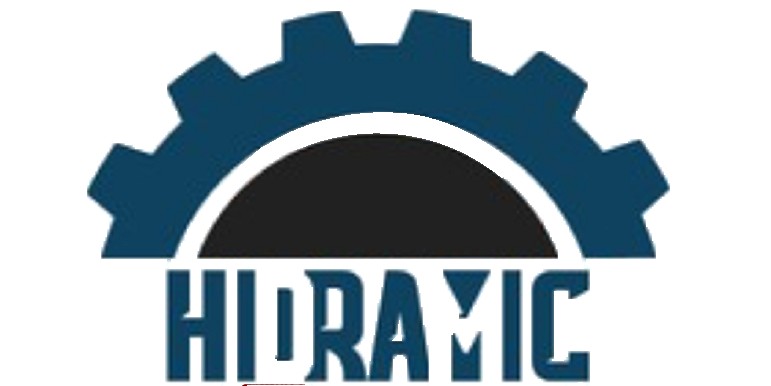

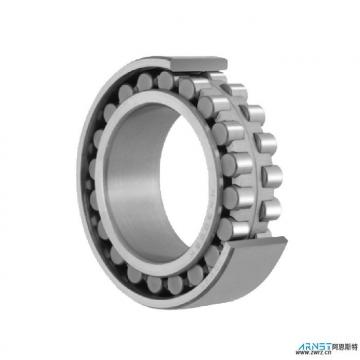 CRBH12025AUU Crossed Roller Bearing
CRBH12025AUU Crossed Roller Bearing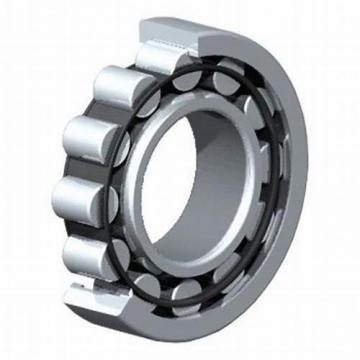 CRBH14025AUU Crossed Roller Bearing
CRBH14025AUU Crossed Roller Bearing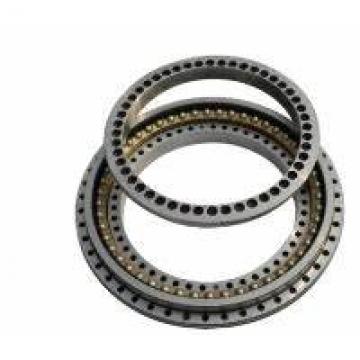 CRBH8016A Crossed roller bearing
CRBH8016A Crossed roller bearing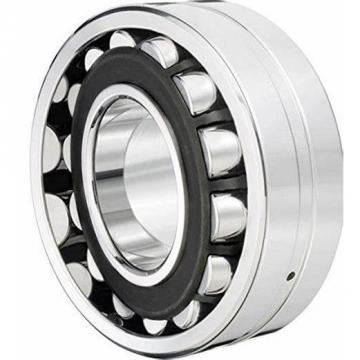 CRBH9016A Crossed roller bearing
CRBH9016A Crossed roller bearing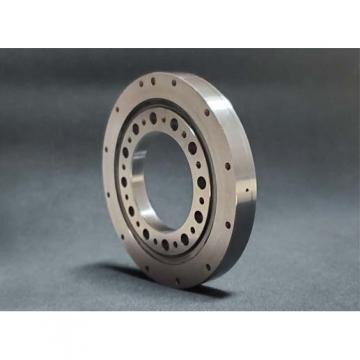 CRBH13025AUU Crossed Roller Bearing
CRBH13025AUU Crossed Roller Bearing